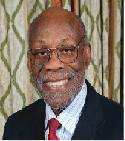Meeting of Black Community Forum with Culture Montreal
Meeting of Black Community Forum with Culture Montreal
By Dr. Clarence S. Bayne
President of BCRC
Present:
Chair of the Secretariat of Black Community Forum, Editor of Semaji, Administrative Coordinator of BCRC, Artistic Director of Black Theater Workshop, General Manager of Black Theater Workshop, Union United Church Representative, Black Writers Guild Representative and Coordinator of Logos Readings, Directrice du Développement Strategique de Culture Montreal, Directrice générale de Culture Montreal, and Member of Board of Culture Montreal.
The meeting was opened by the Directrice du Développement Strategique de Culture Montreal, who introduced the members of Culture Montreal and welcomed the members of the Black Community Forum. She briefly described the process in place at CM for restructuring the organization (Culture Montreal) so that it could more effectively foster and promote diversity as a central principle in the development of arts and culture in Montreal. She, and the Directrice générale of Culture Montreal, set out the challenges of embarking on this plan of action and the anticipated implementation problems. But the organization is committed and resolved to see it through. They expressed the desire that the Black Community Forum (BCF) and its member organizations support Culture Montreal and its network to achieve the objectives set out in the organization’s Action Plan, which has been constructed after extensive consultations with a large number of organizations and persons. Among those were the Black Theatre Workshop, and the Black History Month Round Table.
Dr. Bayne thanked Culture Montreal for inviting the Forum to meet with BCF and briefly presented the mission, mandates, principles and purposes, and operating structure of the BCF against the background of two documents circulated to the CM administrators in advance of the meeting. BCF focused its observations and comments on the principles of inclusiveness in a democracy that constitutionally recognizes and respects diversity. It was pointed out that the Forum is a network of 13 English speaking Black Community organizations. He stated that these organizations represent a wide range of cultural and community activities; and minority artistic expressions. Moreover, these organizations have been providing services to the Black communities and contributing to the art and culture of Montreal for 25 to 100 years, if not more. Bayne, and the Artistic Director of BTW, summarized the concerns expressed by the Black English speaking artists and cultural organizations at the October 27th 2017 Conference and Meeting. Bayne drew attention to the well documented and recognized fact that the contributions of Blacks, and English speaking Blacks in particular, have been eliminated from Quebec’s history and ignored in Quebec and Canadian societies. He said it is absurd that a Black man (Mathieu DaCosta) helped Champlain to win the welcome and acceptance of indigenous peoples of Quebec, yet Blacks were denied full participation in the 375th planning, presentations and displays. In particular, the exclusion of the English speaking communities from full participation in Montreal’s 375th is dishonest and insulting. Bayne re-echoed the complaints of cultural leaders and artists at the Forum (27 October 2017) about systemic discrimination and biases in the funding of minority arts and culture, and, in particular, the English speaking and Black artists. This was referenced by both the artistic director of BTW and the representative of the Black Writer Guild (Logos Readings) who spoke of the difficulties of Black and other minority writers getting financial support from the funding agencies. Bayne talked about the distortions to Canadian multiculturalism that result from the persistence of the “two founding nations” concept and “linguistic duality” under-pinning the institutional arrangements and agreements that hold the Country together under the threat of separation. He said that in the present arrangements, Blacks and other minorities have become second–class citizens, enclaves of one or the other “Settler class” mainstream language entities.
Bayne stated that the Secretariat of BCF is encouraged and inspired by Culture Montreal’s reengineering of its structure and reinventing the organization to empower itself “to foster greater inclusivity” and respect for diversity. He said that BCF espouses the principle of “collaborative unity and existential responsibility”, which he associated with the concept of network leadership, as opposed to centralized top down management leadership. He said that the days of the “superman leader” are gone. He made the observation that Culture Montreal’s intention to “reflect as completely as possible on issues and realities regarding the participation of all Montrealers in culture, across our territory and through the bodies and activities that make up the cultural scene” addresses and supports the demands of BCF for full participation of English Speaking Blacks and other minorities in the policy making, the art and culture, and decision making processes of the society. A summary of the Culture Montreal Diversity Project is presented below:
Culture Montreal Diversity Project Observations and 2018-2020 Action Plan
To arrive at its Action Plan, CM held several consultations and sensing meetings with a large number of persons and organizations. The Observations made at the various sessions by persons and organizations involved in the Culture Montreal’s consultation process that preceded its action plan (2018-2010) are grouped under three categories that constitute the focus for Culture Montreal planned reform. They are:
Focus1: Representativeness and instrumentalization of cultural diversity in artistic and cultural life and practice.
Focus 2: Access and systemic obstacles can hamper development and prevent citizens from diverse communities from participating in arts and culture life.
Focus 3: Governance and inclusion with Culture Montreal and the Entire Cultural Community
From the sub-categories (influencing sub-factors that make up each of the categories/focus) Culture Montreal has developed three objectives which are part of its three year Action Plan.
Year 1: 2018
Objective: Create the conditions internally to foster greater inclusivity within Culture Montreal (CM), the Board, working Committee, team, activities, events, etc.
Year 2: 2019
Objective: Consolidate good governance, practices, and extend the influence of Culture Montreal’s efforts beyond the organization.
Year3: 2010.
Objective: Acquire tools to make diversity project efforts permanent.
OUTCOMES FOR THE MEETING
CM stated that there are a number of changes in its by-laws and policies and structure that Culture Montreal is in the process of making before it can operationalize its revised mandate and mission; and carry out its purposes of artistic and cultural diversity and complete inclusivity. However, CM is prepared to work with BCF and individually with member organizations to assist with access to resources, facilities, programs available in the City and other public and private spaces.
CM’s overarching policy requires that it work with anyone in the Arts and culture that wishes to work with, or seek, its assistance. Of course, this is subject to its limited resources. However, CM recognizes that greater efficiency and effectiveness is achieved if groups collaborate. CM is also prepared to work with and assist clients and partners even while they (CM) go about creating the internal structures and capacity for accomplishing the long term objectives of its Action Plan.
BCF has put CM on notice that it wishes to have its assistance to engage the City and Tourism Montreal and Canada to work with the Black Community Forum to create a Black Creative Tourism Sector based on the creative artistic and culture competences of artists and cultural institutions in the Black English Speaking Communities. The Secretariat will be pursuing this by developing a proposal drawing on expertise and assistance of CM. The initial plan will engage specific member organizations of the BCF (Union United heritage and historical program; BSC and partners archival displays, BCRC Education and history walking and audio tours). [Such a proposal has been placed in very general terms on an agenda at the City under the Coderre Administration].
The Secretariat of BCF will also speak to CM about helping to set up and participating in the BCF Toponomy Committee and advising on operationalizing it.
CM has invited BCF, and individual member organizations, to collaborate with it to assist in achieving its diversity and inclusivity objectives. We note from the Action Plan circulated at the meeting that two of BCF member organizations, BHMRT and BTW, participated as individual sovereign organizations in the reflections meetings called by the CM and leading to the development of its Action Plan.
OBSERVATION
Explicit in the working action plan and collaborations between organizations is the principle of good governance and best practices. This is also as guiding principle of the Black Community Forum.
For Full Version of Semaji December 2017 Click Here




